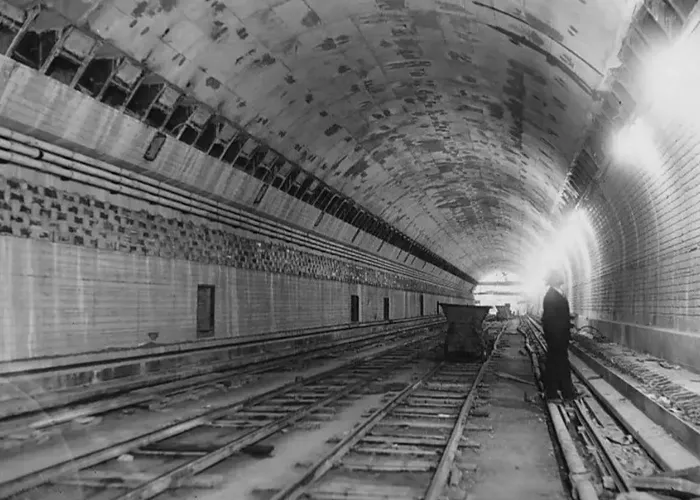December 22 has been a notable date in American history, marked by various significant events that reflect the social, political, and cultural evolution of the nation. This article explores key occurrences on this date, detailing their implications and historical context.
What Happened on December 22 in American History?
1. George Washington Resigns His Commission (1783)
On December 22, 1783, George Washington appeared before the Congress of the Confederation in Annapolis, Maryland, to formally resign his commission as commander-in-chief of the Continental Army. This event was monumental as it symbolized the transition from military to civilian rule and set a precedent for future leaders. Washington’s decision to relinquish power voluntarily was unprecedented at that time and demonstrated his commitment to democracy and the principles of republican governance.Washington’s resignation came after the successful conclusion of the American Revolutionary War, marking the end of a long struggle for independence from British rule. His act of stepping down was not just a personal decision but a powerful statement against tyranny, reinforcing the idea that military leaders should not hold political power indefinitely. This event is often regarded as a pivotal moment in establishing civilian authority over the military in the United States.
2. The Abolition of the International Slave Trade (1807)
On December 22, 1807, President Thomas Jefferson signed legislation that officially abolished the international slave trade in the United States. This law made it illegal to import slaves into the country, reflecting a growing moral opposition to slavery among many Americans. However, it is important to note that while this law ended legal importation, it did not abolish slavery itself within the existing states.The abolition of the international slave trade was influenced by various factors, including humanitarian concerns and economic considerations. Many abolitionists argued against the inhumanity of slavery and its associated practices. The law came into effect on January 1, 1808, and while it marked a significant step towards ending slavery, illegal smuggling continued for many years thereafter.
3. The Opening of the Lincoln Tunnel (1937)
On December 22, 1937, the Lincoln Tunnel was officially opened to traffic. This engineering marvel connects New Jersey to New York City and is one of the longest underwater vehicular tunnels in the world. The tunnel was constructed to alleviate traffic congestion caused by increasing automobile use and provided a crucial transportation link between these two densely populated areas.The Lincoln Tunnel consists of three separate tubes and serves millions of vehicles each year. Its construction was part of a broader trend in the early 20th century where cities sought innovative solutions to handle urban growth and mobility challenges. The tunnel’s opening represented not only an engineering achievement but also an important development in facilitating commerce and travel in the region.
4. The First Christmas Tree Illuminated by Electric Lights (1882)
Another noteworthy event occurred on December 22, 1882, when Edward H. Johnson displayed the first-ever Christmas tree illuminated by electric lights at his home in New York City. Johnson was an associate of Thomas Edison and vice president of Edison Electric Light Company. This innovation marked a significant shift in holiday traditions and paved the way for modern Christmas celebrations.Before this event, Christmas trees were typically decorated with candles, which posed significant fire hazards. Johnson’s use of electric lights not only enhanced safety but also added a new aesthetic dimension to holiday decorations. This event is often credited with popularizing electric lights for Christmas trees across America and eventually around the world.
5. Repeal of “Don’t Ask, Don’t Tell” (2010)
On December 22, 2010, President Barack Obama signed legislation repealing “Don’t Ask, Don’t Tell,” a policy that had restricted LGBTQ individuals from openly serving in the U.S. military since its implementation during Bill Clinton’s presidency in 1994. The repeal allowed service members to serve openly without fear of discharge based on their sexual orientation.The policy had been controversial since its inception; many argued it was discriminatory and undermined military effectiveness by forcing LGBTQ individuals to hide their identities. The repeal represented a significant victory for LGBTQ rights advocates and marked a progressive change in military policy reflecting broader societal shifts toward acceptance and equality.
6. Romanian Revolution (1989)
While not an American event per se, December 22 also holds significance due to its global implications. On this day in 1989, Romanian dictator Nicolae Ceaușescu was ousted from power following widespread protests against his regime during what became known as the Romanian Revolution. Ceaușescu’s fall marked one of the last violent overthrows of a communist government during that era.The implications for America were profound as this event signified a broader decline of communist influence in Eastern Europe and contributed to discussions about U.S.-Romanian relations post-Cold War. The U.S., under President George H.W. Bush, expressed support for democratic movements across Eastern Europe during this period.
7. Alfred Dreyfus Affair (1894)
On December 22, 1894, French army officer Alfred Dreyfus was sentenced to life imprisonment based on dubious evidence amidst rampant anti-Semitism within France. Though primarily a French affair, this incident had reverberating effects globally and highlighted issues related to justice and civil rights that resonated with American values.The Dreyfus Affair sparked intense public debate over anti-Semitism and injustice within French society and led many intellectuals worldwide—including Americans—to rally against such prejudices. It ultimately became a catalyst for discussions about civil rights and social justice movements that would gain momentum in various forms throughout history.
Conclusion
December 22 is rich with historical significance in American history through events that reflect societal changes, innovations in technology, shifts in policy regarding civil rights, and notable figures who shaped cultural landscapes. Each occurrence contributes uniquely to understanding America’s past while highlighting ongoing themes such as democracy, equality, innovation, and social justice.As we reflect on these events today, they serve as reminders of both progress made and challenges that remain within American society—a narrative that continues to evolve with each passing year.
Related Topics:

